When we think of overcoming obstacles, we often picture quiet determination and unexpected resilience. But for some, it also means finding and fully owning their voice.
In this first part of our two-part blog series, we’re honored to introduce a story that embodies both courage and transformation. Born profoundly deaf and among the first children in Denmark to receive cochlear implants, our guest has navigated a lifelong hearing journey shaped by technology, family support, and an unshakable drive.
From competing as a Division I tennis player in the United States to supporting others with hearing loss, her path reveals the power of embracing every part of ourselves. Today, she uses her experience with cochlear implants to advocate for hearing health, connect with the deaf and hard of hearing community, and inspire others to reclaim their confidence.
In the following Q&A, Mathilde Tranberg shares her personal journey in her own words, from childhood memories to the moment she embraced her voice as an advocate.
A: I was born in Denmark in July 2000, and I didn’t have a hearing screening at birth. I have three older siblings with normal hearing, and my mom noticed early on that I was much quieter than my cousin, who was born a few months before me. When I was 10 months old, we went to the doctor and found out that I was profoundly deaf in both ears.
It was a difficult and uncertain time for my family as they started learning about hearing loss, sign language, and cochlear implants. I was number 84 in Denmark to receive cochlear implants, and no one knew what my future would look like.
I attended mainstream schools in Denmark for both elementary and high school, and later moved to the U.S. to play Division I tennis at Long Beach State. While I didn’t have a strong connection to the deaf and hard of hearing community growing up, that has changed over time.
Now, through my work with cochlear implants, I meet many people both in the clinic and in the community who are struggling with hearing loss, and it has given me a much deeper connection to the community.
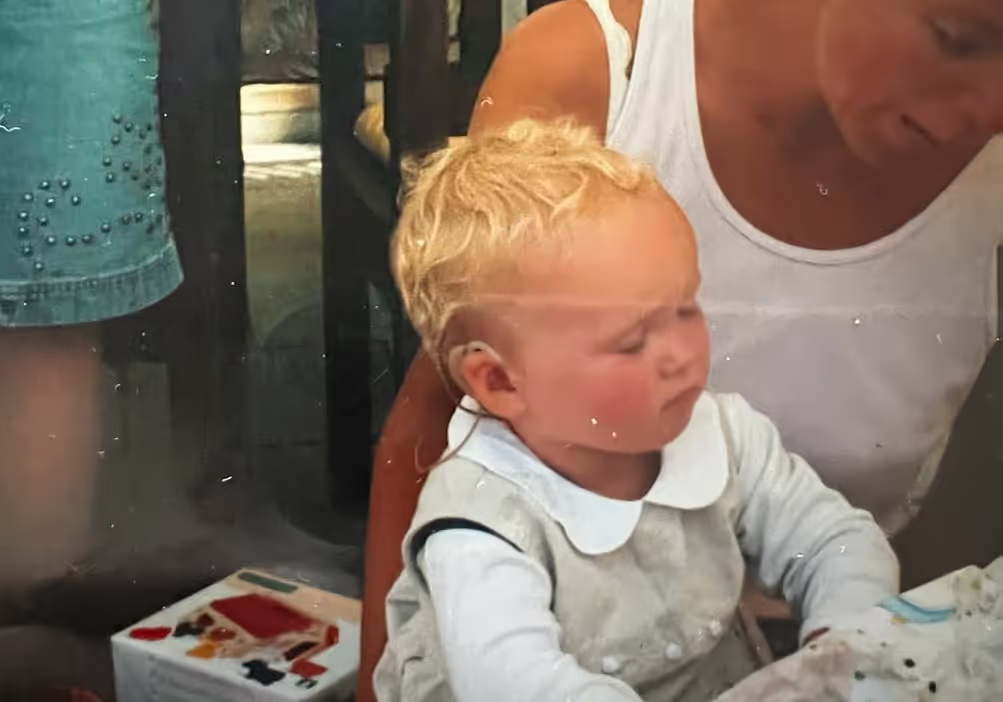
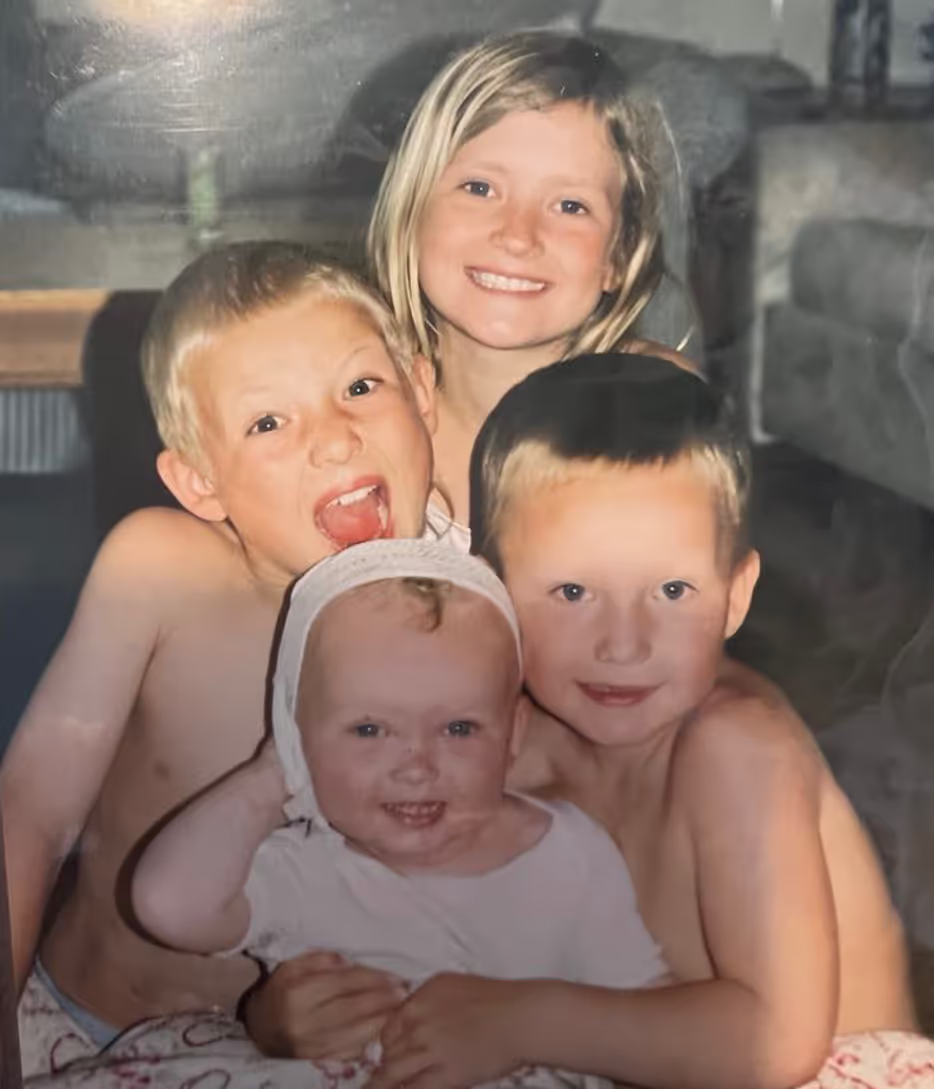
A: I don’t remember everything from my early years, but talking with my parents about my childhood and growing up with cochlear implants has been very eye-opening.
It wasn’t always easy, and I really admire the choices my parents made and how hard they worked to help me succeed. Their support, along with the support of my siblings, is a big reason I am where I am today. They helped me learn to speak, believe in myself, and follow my dreams with cochlear implants.
Even though I have hearing loss, I don’t really see myself as a deaf person because I’ve grown up and lived most of my life in a mainstream society.
One thing I remember as a kid was how people would often stare at my ears and at the small backpack that held my external device. I sometimes felt out of place, and one of my tennis friends even asked if I was carrying a gift on my back. That moment really stayed with me. I had many doubts about showing my cochlear implants because I didn’t think they looked pretty, and I didn’t want to feel different from my peers.
But the support from my siblings, who treated me simply as their little sister and always stood by me, is something I will never take for granted. They didn’t see “Mathilde with cochlear implants”; they just saw me as I am, with lots of personality. They teased me like any siblings would.
When I turned six years old, I tried waterskiing for the first time. It was different for me since the cochlear implant wasn’t waterproof at that time, so I was deaf while they taught me how to come up. My siblings were in the water with me and helped me. They showed me using their bodies how I should stand up and balance.
It turned out that I managed to waterski on my sixth birthday, and it was a lot of fun.
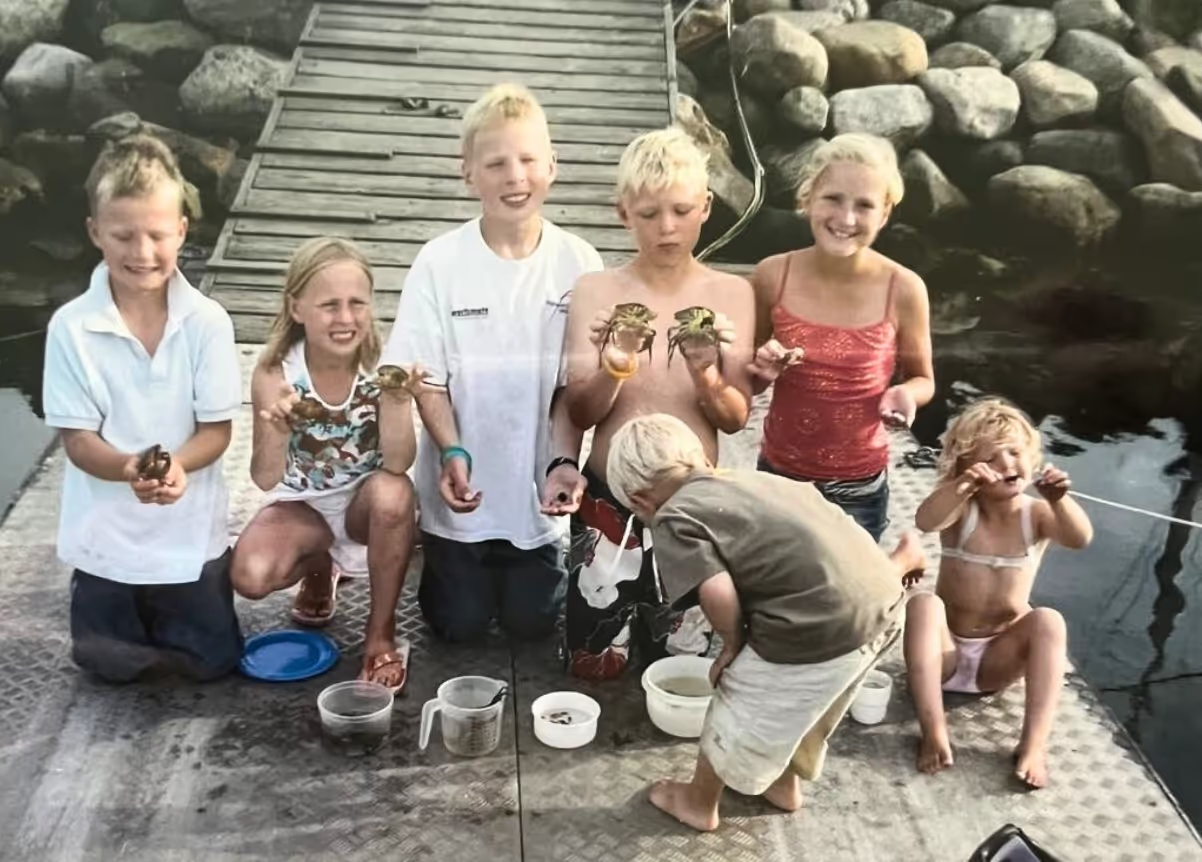
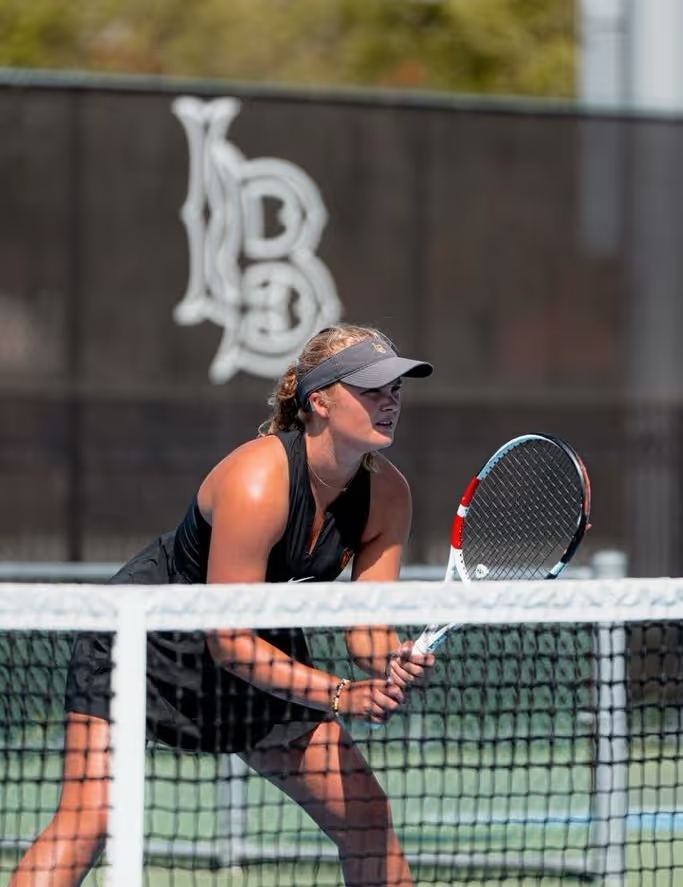
A: Tennis has played a big role in shaping who I am today. Being a Division I tennis athlete taught me discipline, time management, and how to keep going even when I was close to giving up. I started playing when I was five years old and traveled both nationally and internationally for tournaments, which made me stronger and more resilient.
These experiences helped me grow as a person and as an athlete. That’s also how I advocate for others now — by encouraging them to be themselves and to get involved in a sport or community early on. Tennis gave me friendships, life lessons, and experiences that I’ll carry with me forever.
Looking back, tennis taught me that nothing in life comes easy. You have to work hard and keep going, even on the tough days. There were times I didn’t feel like stepping onto the court, but I did it because I wanted to be part of the team and play the matches.
My teammates made my college experience unforgettable. We spent so much time together — traveling, practicing, doing homework — and we supported each other through everything. They became some of my closest friends.
They were also very understanding about my cochlear implants and thought it was the coolest feature that I could block every sound around me just by taking them off. Sometimes I had a hard time hearing everything on the court because of the wind, distance, or background noise. But I learned to watch, read body language, and pick up on visual cues if I didn't hear everything the coach said.
My senior day in college is a day I’ll never forget. Just a week before my last home match, my right cochlear implant stopped working. I didn’t have a backup, and after all the long, sweaty practices, it just shut down. However, my family got a new device shipped to arrive the day before the match, so I could hear my coach’s speech and play. It was stressful, but I’ve learned that there is always a way.
That experience, and so many others, have taught me to keep going and to speak up about hearing health. A lot of people don’t even know cochlear implants exist or how life-changing they can be. It is not just about hearing again — it’s about getting your confidence back and reconnecting with the world around you. Hearing loss is treatable, and no one should have to go through it alone.
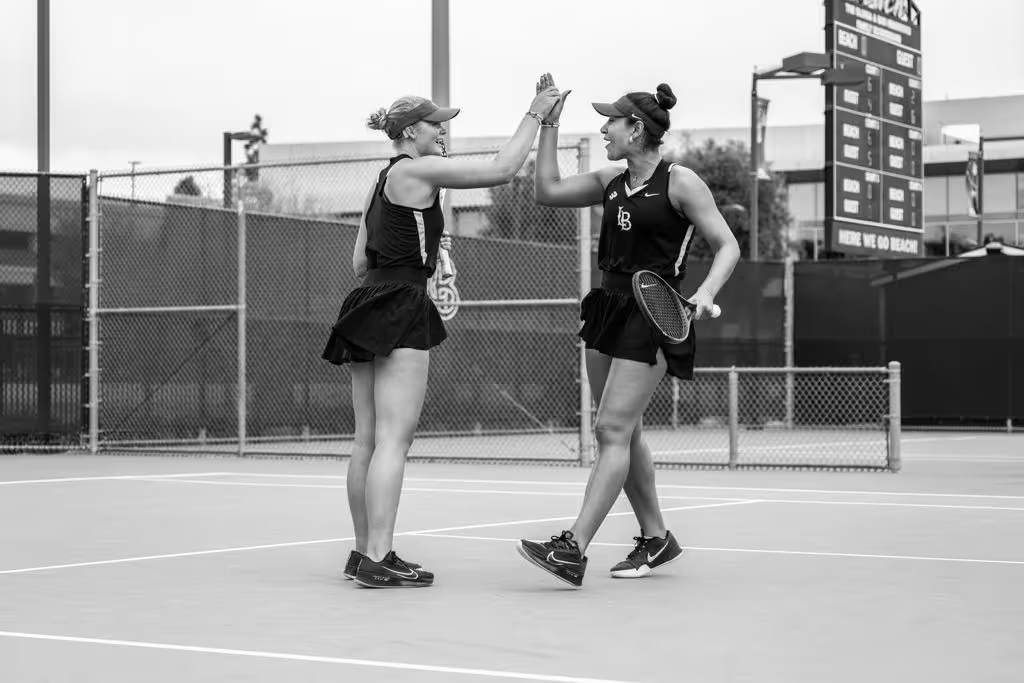
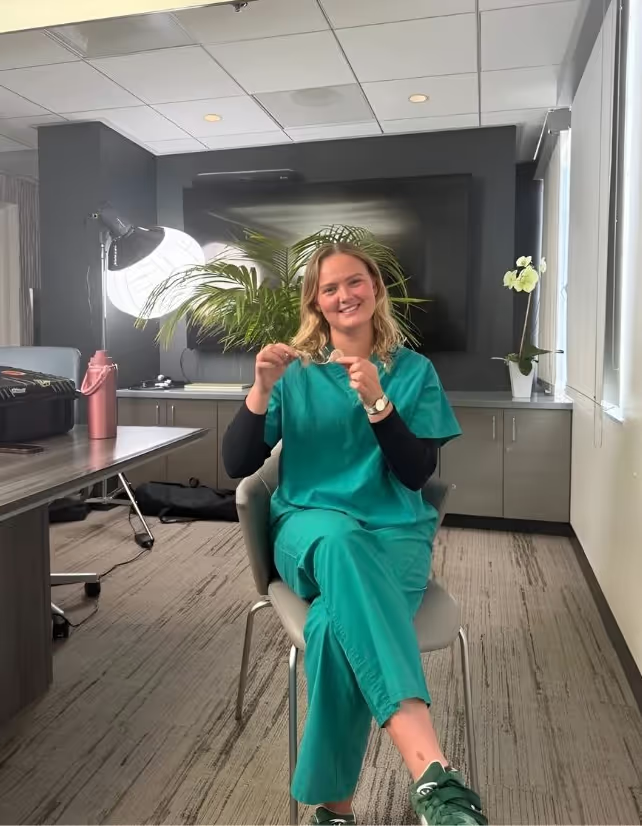
A: Yes, there was a very specific moment that changed everything for me and led me to want to support others on their hearing journey.
Growing up, I never thought I would work in the field of hearing loss or cochlear implants. I wasn’t always confident about having cochlear implants, and I often tried to hide them because I didn’t want to feel different from my peers. It was something I kept to myself.
But during my last semester at Long Beach State, I started asking myself some big questions: What do I really want to do with my life? What makes me feel fulfilled? I had always dreamed of becoming a midwife because I love babies and the idea of supporting families. But for the first time, I began to question if that path was truly right for me.
That’s when I started looking back on my own journey. I realized I had spent most of my life avoiding the topic of hearing loss, even though it’s such a big part of who I am. I asked my parents to tell me more about my early childhood because I honestly didn’t know many details. I didn’t even know when I received my first and second cochlear implants.
That first conversation with my dad was eye-opening. One of the first things he told me was, “The doctors said you might never be able to speak another language besides Danish.” That really stuck with me because at that moment, I was about to graduate from college in the United States.
That moment shifted something in me. I realized how powerful it can be to prove people wrong, and I wanted to help others do the same. I started reaching out to hospitals and programs in California to see if they had any deaf adults working in their cochlear implant programs.
That was the beginning of my journey into public advocacy, turning something I used to hide into something I now use to help others.
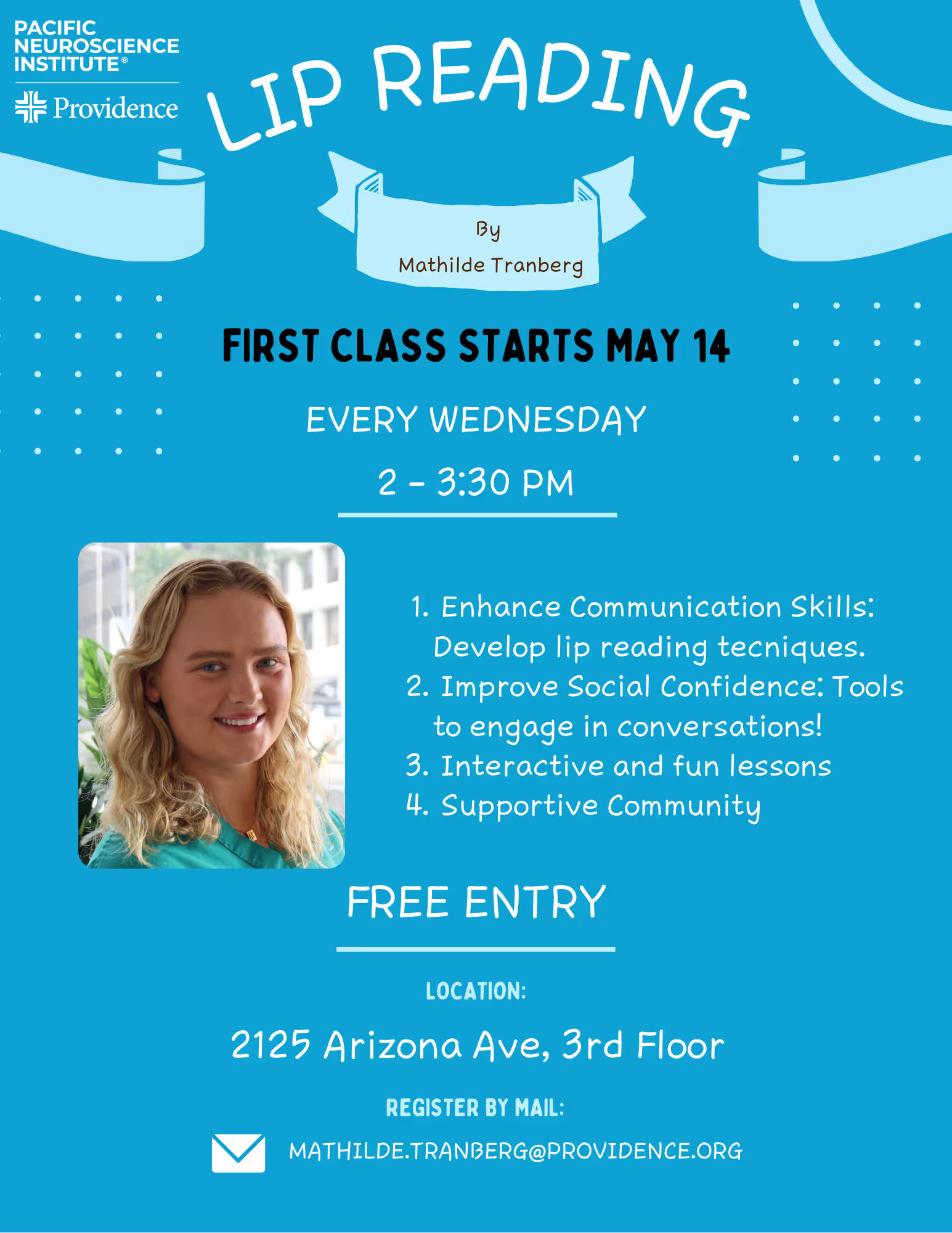
A: I’ve always had a strong passion for helping others and providing support, so stepping into a role that connects directly to my own life experience has been incredibly meaningful. I’ve lived with cochlear implants since I was two years old, so this work is very personal to me.
At the Pacific Neuroscience Institute, I serve as a Cochlear Implant Outreach Ambassador. My role involves raising awareness about cochlear implants, engaging with the community and audiologists, advocating for those with hearing loss, and supporting patients through their journey. I also help with marketing efforts and coordinate patient outreach to ensure people feel supported and informed.
One of the things I also do is host weekly lip-reading classes, which have become a great way to build connection and confidence among those with hearing loss. Our focus is on creating a strong, community-based program where we support one another and help spread the word about the life-changing potential of cochlear implants.
My work at the Pacific Neuroscience Institute is very meaningful to me, and it’s important that everyone feels respected and understood, especially when it comes to the challenges of hearing loss.
From my own experience, I know how important it is to speak clearly, face the person, and use the right tools to make sure they get all the information they need. Hearing loss is invisible, and I’ve seen how some people simply nod along even when they haven’t heard what was said. I used to do that a lot too. That’s why it is so meaningful to help give people their lives back through cochlear implants. It’s truly inspiring to see how life-changing it can be for our patients.
I feel very lucky to be part of the days when we activate patients for the first time with their cochlear implant. It is very rewarding, as well as being there for patients who are struggling with hearing aids, and seeing that their life is not lost but that there is hope for their future with a cochlear implant.
I have an Instagram page, hearlogic.myspace, where I share a little bit of the outreach I do for Pacific Neuroscience Institute. I am hoping to develop it into a platform where people can ask me questions, get resources, and explore other important topics. Feel free to go check it out!
Mathilde’s journey reminds us that our biggest challenges can become our greatest sources of strength, and that embracing our story can open doors for others to do the same. From her early days in Denmark to her life on the tennis court and her role as an advocate today, Mathilde shows us the power of resilience and authenticity.
In the next part of this series, we’ll shift our focus from Mathilde’s personal story to the broader impact of her work. She’ll share the questions she hears most often from people considering cochlear implants, her thoughts on accessibility around the world, and why representation for deaf and hard of hearing individuals is more important than ever. We hope you’ll join us as we explore how advocacy can spark more informed, inclusive conversations — and inspire a future where every voice is heard. Stay tuned!
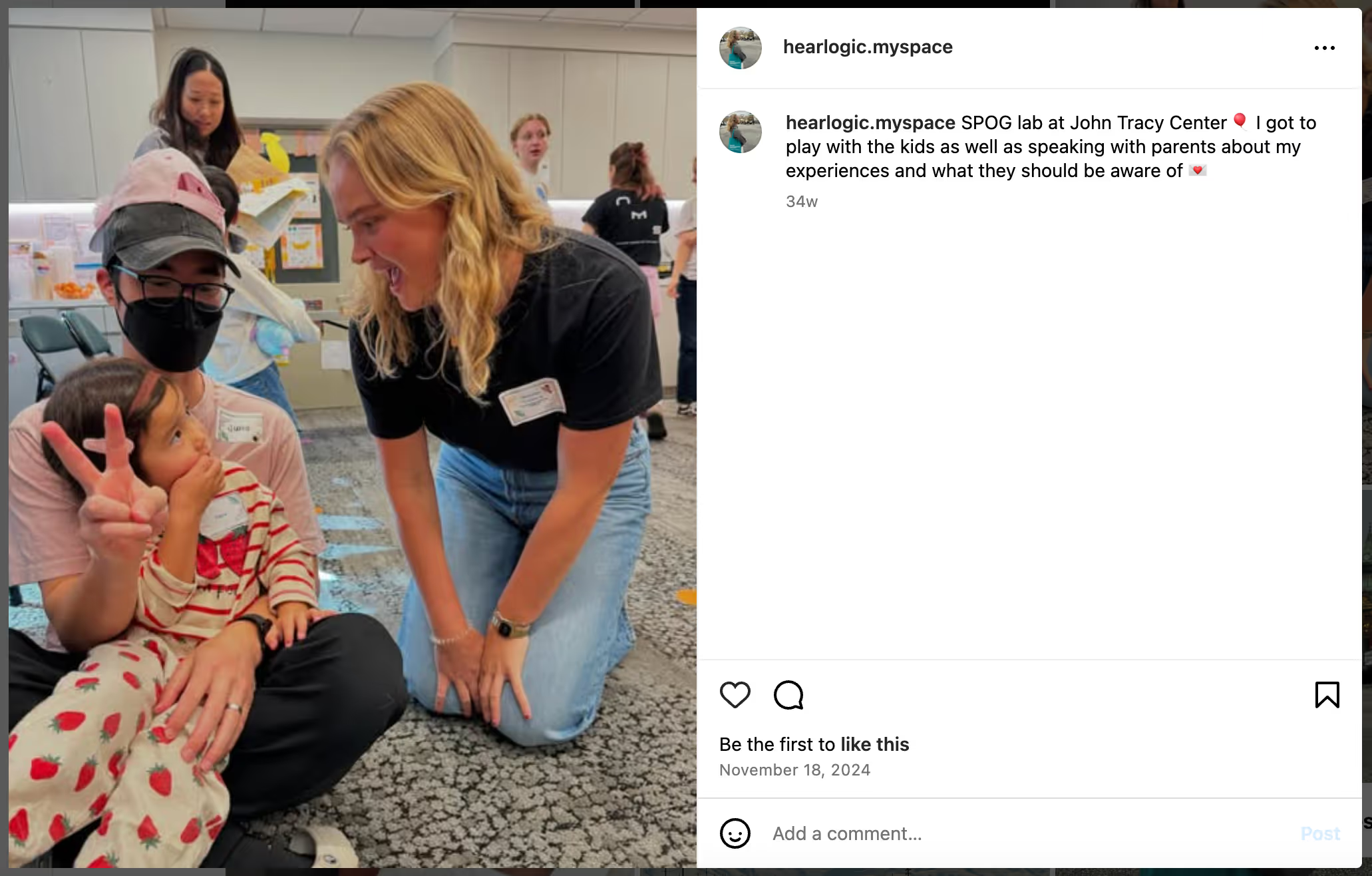
InnoCaption provides real-time captioning technology making phone calls easy and accessible for the deaf and hard of hearing community. Offered at no cost to individuals with hearing loss because we are certified by the FCC. InnoCaption is the only mobile app that offers real-time captioning of phone calls through live stenographers and automated speech recognition software. The choice is yours.